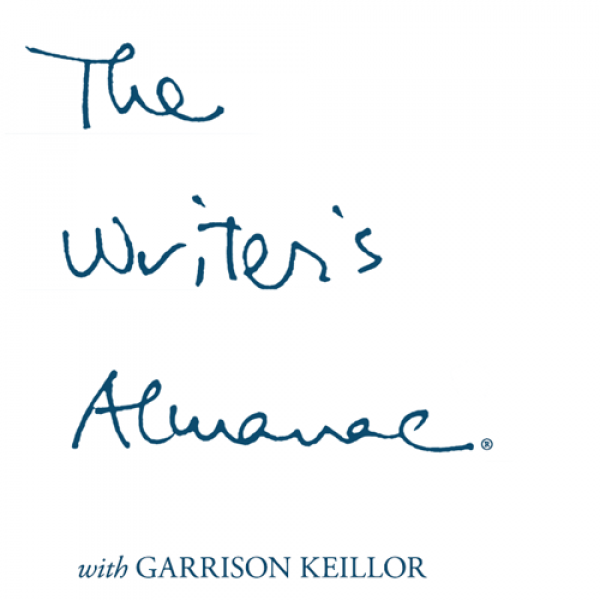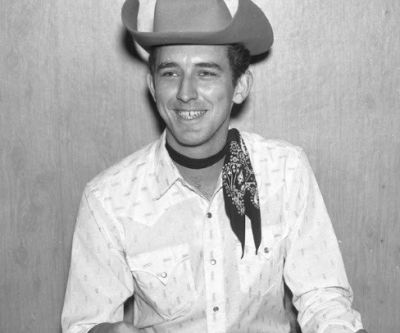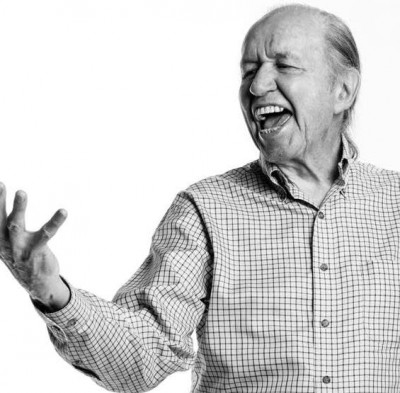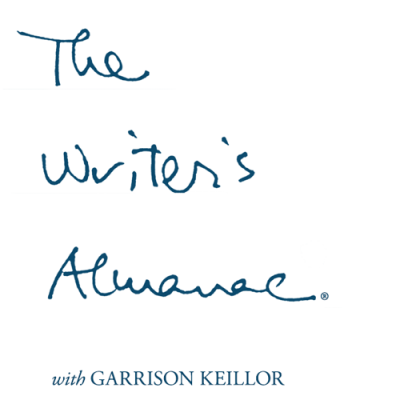December 20, 2018
Tuesday
8:00 p.m.
Minneapolis, MN
Test schedule
A live performance with Robin and Linda Williams at the Cedar Cultural Center
May 20, 2018
Sunday
3:00 p.m.
Lexington, MA
Lexington, MA
A live performance at the Saenger Theatre
April 10, 2018
Tuesday
8:00 p.m.
Tulsa, OK
Tulsa, OK
A live performance at the Brady Theater
March 17, 2018
Saturday
8:00 p.m.
Long Beach, CA
Long Beach, CA
A live performance at the Carpenter Performing Arts Center
March 15, 2018
Thursday
7:00 p.m.
Mobile, AL
Mobile, AL
A live performance at the Saenger Theatre
“I Saw a Peacock with a Fiery Tail” by Anonymous. Public Domain.
I saw a peacock with a fiery tail
I saw a blazing comet drop down hail
I saw a cloud wrapped with ivy round
I saw an oak creep upon the ground
I saw a pismire swallow up a whale
I saw the sea brimful of ale
I saw a Venice glass full fifteen feet deep
I saw a well full of men’s tears that weep
I saw red eyes all of a flaming fire
I saw a house bigger than the moon and higher
I saw the sun at twelve o’clock at night
I saw the man that saw this wondrous sight.
It’s the birthday of poet and dramatist John Gay, (books by this author) born in Barnstaple, England (1685), best known for his play The Beggar’s Opera. When John Gay died in 1732, he was buried in Westminster Abbey. His epitaph, written by Alexander Pope, is followed by two lines that Gay himself composed: “Life is a jest, and all things show it. I thought so once, and now I know it.”
It’s the birthday of the man who defined poetry as “the passionate pursuit of the Real”: Czeslaw Milosz, (books by this author) born in Szetejnie, Lithuania (1911), when it was still part of the Russian Empire. In 2002, he wrote Milosz’s ABCs, a book of alphabetical entries dealing with people Milosz knew and admired, historical events, abstract ideas, his own characters and poems, and relevant places or happenings in his own life. One of the entries is for “Szetejnie, Ginejty, and Peiksva,” the hamlets around where he was born. He wrote: “A traveler journeying across that plateau today will not be able to intuit what once was on it. Smoke from the hamlets has vanished, along with the creaking of well pumps, the crowing of roosters, barking of dogs, people’s voices. There is no longer the green of orchards embracing the roofs of the cottages — apple trees, pear trees, plum trees in every farmyard, between house, barn, and granary, so that the village streets were framed in trees. People loved trees there, and they also loved whittling away at wood: carved window shutters, symbols and letters chiseled into beams, stools of a prescribed shape, frequent roadside crosses linked with the radiant symbol of the sun and an inverted crescent moon, or little chapels in which sat a mournful Jesus.”
He moved around Russia with his family while his dad served as an engineer in the army during World War I. Then he went to high school in Wilno, which was then part of Poland but is now the capital of Lithuania. He worked for Polish radio at the outbreak of World War II, and chose to stay in Warsaw through the war. Afterward, he worked as a political attaché for Poland, with assignments in New York, Washington, D.C., and Paris. In 1951, while Milosz was working in Paris, he found out that if he went back to Poland he would be arrested for not being Communist enough. So he sought political asylum in France, and from there he published fierce critiques of Stalinism, and more volumes of poetry. Finally, he grew tired of the leftist intellectual culture in France, and all the people who idealized Communism without really understanding what it was like to live under Communist rule. So he left for California, and lived in Berkeley for many years, teaching at the university there.
In 1981, he was finally able to return to Poland. A year earlier, one of Milosz’s poems had been inscribed onto a monument in Gdánsk, Poland, for shipworkers who were killed by the government in a protest. At the base of the monument was a line from Psalm 29, translated by Milosz: “The Lord will give strength unto his people.” When he went back to Poland the following year, members of the trade union put up a banner that said: “The People Will Give Strength Unto Their Poet.”
In 1980, he won the Nobel Prize in literature. He published many collections of poetry, including City Without a Name (1969), Chronicles (1987), and The Second Space (2002), and many books of essays, like The Captive Mind (1953), about the behavior of intellectuals under repressive regimes. He died in 2004 at the age of 93.
Milosz said, “If I were asked to say where my poetry comes from I would say that its roots are in my childhood in Christmas carols, in the liturgy of Marian and vesper offices, and in the Bible.”
And he wrote: “To believe you are magnificent. And gradually to discover that you are not magnificent. Enough labor for one human life.”
On this day in 1860, a debate on the merits of the theory of evolution took place at Oxford University. It occurred as part of the annual meeting of the British Association for the Advancement of Science. Darwin’s book On the Origin of Species (1859) had just been published seven months earlier, and was hotly contested by scientists and theologians on both sides of the issue. Noted biologist Richard Owen had written a scathing review of the book in the Edinburgh Review, and he also coached the Bishop of Oxford, Samuel Wilberforce, in his condemnation of the book. On the pro-Darwin side of the issue were several liberal theologians — including mathematician and priest Baden Powell — as well as scientists Joseph Dalton Hooker and Thomas Henry Huxley. Huxley was such an ardent and vocal supporter of evolutionary theory that he came to be known as “Darwin’s bulldog.”
Bishop Wilberforce, one of the most famous orators of the day, was to be one of the speakers on Saturday the 30th. The hall was packed and hundreds lined up outside to hear the discussion, which came to be known as the Wilberforce-Huxley debate (or the Huxley-Wilberforce debate, depending on whose side you were on), even though there were many contributors to the discussion. There is no transcript of the day’s events, but one exchange has reached the status of legend. Wilberforce asked Huxley whether he was descended from an ape on his father’s side or his mother’s, and Huxley retorted that he was not ashamed to have a monkey as an ancestor, but he would be ashamed to descend from someone who used his great gifts to obscure the truth. Most accounts include some version of this story, but according to Hooker, that may have been all that most people heard. In his report to Darwin (who was too ill to attend), Hooker wrote:
“Well, Sam Oxon got up and spouted for half an hour with inimitable spirit, ugliness and emptiness and unfairness … Huxley answered admirably and turned the tables, but he could not throw his voice over so large an assembly nor command the audience … he did not allude to Sam’s weak points nor put the matter in a form or way that carried the audience. The battle waxed hot. Lady Brewster fainted, the excitement increased as others spoke; my blood boiled, I felt myself a dastard; now I saw my advantage; I swore to myself that I would smite that Amalekite, Sam, hip and thigh if my heart jumped out of my mouth, and I handed my name up to the President as ready to throw down the gauntlet.”
Hooker was the closing speaker of the discussion, and he felt that his speech had carried the day (of course, Wilberforce and Huxley each felt the same way about their own speeches). In the end, though each side claimed victory, most accounts chalk it up as a win for the Darwinians.
On this date in 1864, President Lincoln granted the Yosemite Valley to California for “public use, resort, and restoration.” A homesteader, Galen Clark, had been so awed by the giant sequoia trees that he vowed to save them from logging; his cause gained momentum and support from photographer Carlton Watkins and Senator John Conness. The Department of the Interior helped them craft a bill, which passed both houses of Congress and was signed by the president in the height of the Civil War. The Yosemite Land Grant of 1864 marked the first time the federal government set aside land specifically for preservation and recreational use. It didn’t have the authority to evict homesteaders, though, and that battle continued until 1872, when the Supreme Court voided the homesteaders’ claims.
In 1865, Frederick Law Olmsted wrote a treatise on national parks at the request of the Board of Yosemite Commissioners. In it, the landscape architect — whose most famous work is New York’s Central Park — wrote:
“It is a scientific fact that the occasional contemplation of natural scenes of an impressive character, particularly if this contemplation occurs in connection with relief from ordinary cares, change of air and change of habits, is favorable to the health and vigor of men and especially to the health and vigor of their intellect beyond any other conditions which can be offered them, that it not only gives pleasure for the time being but increases the subsequent capacity for happiness and the means of securing happiness.”
On this day in 1908, a mysterious explosion over central Siberia flattened trees over an 800-square-mile area. Known as the “Tunguska event” because it happened near the Stony Tunguska River, the devastation was caused by an explosion that occurred at an altitude of five to 10 kilometers, with energy a thousand times more powerful than the atomic bomb dropped on Hiroshima. Scientists believe a comet or asteroid collided with the Earth, but blew up before it hit the ground; the impact created a fireball that ignited the forest, and the blast wave that followed put the fire out. Eighty million trees were knocked over in a pattern radiating out from the epicenter, their limbs and bark stripped away.
Eyewitnesses reported a fireball in the sky, an earthquake-like trembling, and a blast of hot air. A man sitting on his front porch 40 miles away was hurled from his chair. He reported: “Suddenly in the north sky … the sky was split in two, and high above the forest the whole northern part of the sky appeared covered with fire. … At that moment there was a bang in the sky and a mighty crash. … The crash was followed by a noise like stones falling from the sky, or of guns firing. The earth trembled.”






